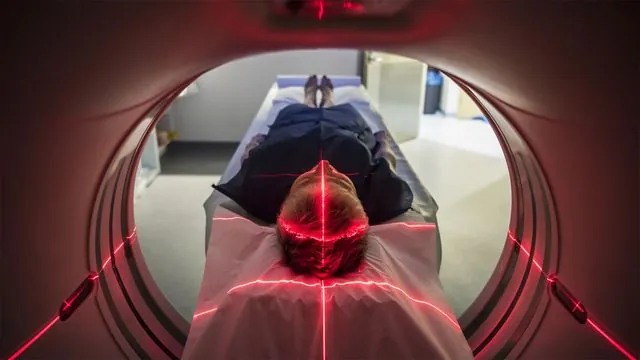
Revolutionizing Lung Health: How AI is Transforming CT Screening for Tobacco-Related Diseases
2025-04-24
Author: Sarah
A Bold New Initiative for Lung Health
In a groundbreaking move, the Alliance for Global Implementation of Lung and Cardiac Early Disease Detection and Treatment (AGILE) has launched an ambitious public health program aimed at high-risk tobacco-exposed individuals. This initiative focuses on longitudinal chest computed tomography (CT) screenings, leveraging the power of artificial intelligence (AI) to streamline the early detection of life-threatening tobacco-related diseases.
Unlocking Early Detection with AI
Recent insights from a study by Dr. James L. Mulshine and colleagues highlight the immense potential of chest CT screenings. These screenings not only help identify lung cancer but also pinpoint emphysema and coronary artery disease at earlier stages. By evaluating chest CT images over time, healthcare professionals can significantly boost cure rates and improve patient outcomes, as emphasized in a companion piece in the European Journal of Cancer.
Overcoming Infrastructure Challenges
The authors outline critical infrastructure hurdles that need addressing for the success of this initiative. These challenges include optimizing radiologic workflows, ensuring the quality of screening and image data, managing costs, and expanding cloud storage capacity. To tackle these obstacles, the consortium advocates for establishing global standards for low-dose CT screenings, which is crucial for achieving international consistency in imaging.
Building a Comprehensive Screening Registry
The program also calls for participants to voluntarily contribute their scans to a centralized registry, necessitating effective outreach strategies to engage potential study subjects. Dr. Mulshine and his team noted, 'The need for effective approaches to communicating about multiple disease detection with various audiences is clear.' They believe AI can facilitate this by enhancing outreach, quality control, and communication.
A Treasure Trove of Data for Research
Beyond early detection, the program promises to generate a wealth of data for clinical research. This data could play a pivotal role in identifying targeted therapies for screen-detected lung cancer, emphysema, and coronary artery disease, paving the way for new treatment breakthroughs. Moreover, financial investments for accessing this database could support further public health research.
Understanding Tobacco-Related Diseases
The authors assert that regular analysis of the collected images and data could lead to a deeper understanding of the natural progression of various tobacco-related diseases, enhancing preventive measures and treatment strategies.
Success Stories to Guide the Way
While the path to establishing this comprehensive CT screening program is fraught with challenges, previous studies have laid the groundwork for success. Notably, the European 4-IN-THE-LUNG-RUN study demonstrated the efficacy of AI tools in detecting lung cancer, while the International Early Lung Cancer Action Project showcased impressive long-term outcomes for patients with screen-detected lung cancer.
A Call to Action
With the AGILE consortium's bold initiative, there’s a renewed call for attention from both the medical community and the public regarding the early detection and management of serious tobacco-related diseases. By fostering international collaboration on standardized screening protocols and advancing AI imaging tools, this ambitious project aims to revolutionize lung health and save countless lives.






 Brasil (PT)
Brasil (PT)
 Canada (EN)
Canada (EN)
 Chile (ES)
Chile (ES)
 Česko (CS)
Česko (CS)
 대한민국 (KO)
대한민국 (KO)
 España (ES)
España (ES)
 France (FR)
France (FR)
 Hong Kong (EN)
Hong Kong (EN)
 Italia (IT)
Italia (IT)
 日本 (JA)
日本 (JA)
 Magyarország (HU)
Magyarország (HU)
 Norge (NO)
Norge (NO)
 Polska (PL)
Polska (PL)
 Schweiz (DE)
Schweiz (DE)
 Singapore (EN)
Singapore (EN)
 Sverige (SV)
Sverige (SV)
 Suomi (FI)
Suomi (FI)
 Türkiye (TR)
Türkiye (TR)
 الإمارات العربية المتحدة (AR)
الإمارات العربية المتحدة (AR)